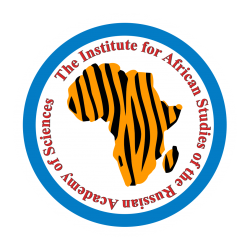Author:
Abstract:
Research interest in the problems of the young generation of the countries of the African continent, including students, has noticeably increased over the last decades. The student youth, called the “conscience of the nation” in African countries, for a long time has been one of the most organized streams of the democratic movement and continues to play a prominent role in national processes. However, the student movement is a very complex and contradictory phenomenon, feeding numerous hotbeds and centers of intense search for national identity and struggle for their rights and freedoms. The authors of this article saw their task in an objective examination of the experience of one of the most famous and authoritative student organizations, mainly in the historical and cultural context.
The article is dedicated to the history of the Union of West African Students’ Union (WASU) – one of the largest organizations of African students who lived and studied in Great Britain in the first half of the 20th century. The historical and cultural perspective of representation was not chosen by the authors of the article by chance. The activities of the WASU are closely connected with the problems of the national liberation movement in West Africa, though it also performed various tasks to protect the interests and rights of students in London and in the UK and therefore holds a key place in the history of the African Diaspora. The authors examine in detail the stages of the ideological and political formation and development of the WASU – from the Union of Students of African Descent, which existed in London at the turn of the second and the third decades of the 20th century, to the extinction of the WASU in the early 1960s. The authors show that for all its weaknesses, mistakes, theoretical immaturity and eclecticism of ideological attitudes, it was the WASU that had formed the anti-colonial agenda in Africa implemented during the national liberation struggle at the turn of 1950–60s in most countries on the continent. In a number of countries in West Africa, after the declaration of independence, former members and leaders of the Union came to power. Among them are Kwame Nkrumah (1909–1972), Benjamin Nnamdi Azikiwe (1904–1996), etc.
The authors offer a new look at the phenomenon of African students, who were equally capable to fight for their interests and the interests of the nation and at the same time expressed conformist sentiments to the colonial authorities and post-colonial reality.
Keywords:
Africa, London, West African Union of Students, Ladipo Solanke, race, colonialism
DOI:
10.31132/2412-5717-2023-65-4-93-106
References:
1. Africa. L. 1953. Vol. XXII, № 1, р. 56.
2. Africa Report. L., 1965, vol. 10, № 5, р. 7.
3. Appiah J. The Autobiography of an African Patriot. Westport, Connecticut: Praeger, 1990. 400 p.
4. Asien, Afrika und Lateinamerika. B., 1978, vol. 1, № 6.1, р. 84
5. Azikiwe N. My Odyssey: An Autobiography. N.-Y. Praeger, 1971. 452 p.
6. Bhabha Н. The Location of Culture. N-Y, Routledge, 1994. http://www2.tf.jcu.cz/~klapetek/bha.pdf (accessed 21.04.2023)
7. Blinova E.V. Socio-political organizations of Africans in London (1920-1930) (In Russian). Political life of Western Europe: antiquity, the Middle Ages, modern and modern times: interuniversity collection of scientific papers. Issue 1. ed. by A.R. Panov; Arzamas: Arzamas branch of UNN, 2016, pp. 144‒151.
